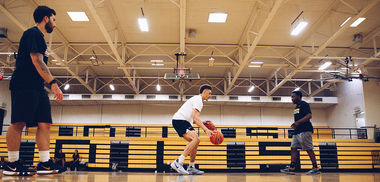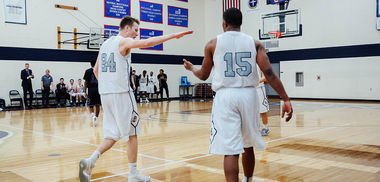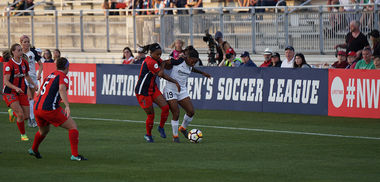46-48 “An argument arose among them as to which of them was the greatest. But Jesus, knowing the reasoning of their hearts, took a child and put him by His side and said to them, ‘Whoever receives this child in My name receives Me, and whoever receives Me receives Him who sent Me. For he who is least among you all is the one who is great.’”
Luke 9:46-48 (ESV)
As an athlete, why do you compete? Many would say, “In order to be the best.” It’s actually become a celebrated answer to the question.
“If you’re not first, you’re last. Second place is first loser.”
However, is being the best player on the court or field the best motivation for giving your all in competition? In Luke, chapter 9, the disciples have experienced a great deal that would tempt anyone to think they were pretty awesome.
Jesus gives them authority to cast demons out of people and to heal the sick. Then they help Jesus miraculously feed over 5,000 people with fives loaves of bread and two fish. What’s more, Peter, James and John get to see Jesus in His heavenly glorified form as He talks with the also-glorified Moses and Elijah.
If it were me experiencing all of this, I would definitely start feeling myself a little bit. The disciples did. So much so, that they actually got in an argument about which one of them was the best of them.
Jesus perceiving their argument, teaches them an extremely important lesson. Who is the greatest among them? He grabs a child and tells them, “Whoever receives this child in My name receives Me.”
In other words, it wasn’t the great things that they had done that would make them great in Jesus’ eyes. It wasn’t even because they were His closest friends. No. If they wanted to impress Jesus, if they really wanted to be great in His eyes, then they would serve those considered least in society.
A child in this time was the least of society. Until she or he was able to help provide for the family, a child was a burden. He or she ate the food, lived in the space and used up the often lacking resources without giving anything in return.
Children were to be seen and not heard, spoken to without speaking back. They had no voice.
The disciples misunderstood their own greatness because they misunderstood what made Jesus great.
The power and authority Jesus displayed was not what He considered to be greatness. His Father was not pleased with Him because He exercised the divinity He’d always had. No. God the Father was pleased with the Son because He gave up His seat in heaven to care for those infinitely less than Himself.
If we would be great in the eyes of our God, we must do the same.
Athletes, even mediocre ones, are given a platform from which they can affect lives in a way that most others cannot. True greatness in God’s eyes is to use the platform that “greatness” in athletics affords you, to serve and advocate for others and the least of these in our society.
Reflect: So ask yourself, “How am I using my athletic gifts and my platform to serve others? How can I truly be great in the eyes of my God?”












